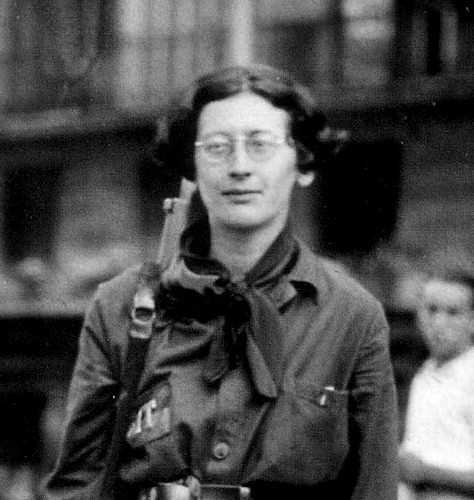
When the Greeks began to think of returning to their homes it seemed to Minerva and Ulysses that reminding them of the sufferings of their dead comrades would be sufficient to shame them…. Achilles knew that he was condemning his father to the miseries and humiliations of a defenceless old age the populace were aware that their homes would be destroyed by them being so long long absent yet, none thought the cost was too great, because they were all pursuing a nothingness whose only value was in the price paid for it. Hector foresaw that his city would be destroyed, his father and brothers massacred, his wife degraded by a slavery worse than death. From then on, its importance exceeded any assignable limit. Its importance was simply imagined as corresponding to the deaths incurred and the massacres expected.

The person of Helen was so obviously out of scale with this gigantic battle that, in the eyes of all, she was no more than the symbol of what was actually at stake but what was at stake was never defined by anyone, nor could it be, because it did not exist. All of them agreed in wishing she’d never been born. Not one of them, except the amateur warrior Paris, cared one iota about her. The Greeks and Trojans massacred one another for ten years on account of Helen. The more we can spread her words the better. Simone Weil actually entered the public domain in 2014, which a good thing for all of us.

He’s done guest post here and here, and we’ve written about him here. This post was translated by Australian author and scholar Chris Fleming. Simone Weil’s “Ne recommençons pas la guerre de Troie” was published in Écrits historiques et politiques (Gallimard: 1979, pp.257-8).


 0 kommentar(er)
0 kommentar(er)
